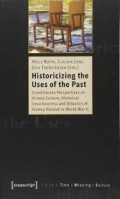
Historicizing the uses of the past
This book presents new developments in Scandinavian memory cultures related to World War II and the Holocaust by combining this focus with the perspective of history didactics. The theoretical fram…
- Edisi
- -
- ISBN/ISSN
- 9783837613254
- Deskripsi Fisik
- -
- Judul Seri
- -
- No. Panggil
- 948.062 HIS h
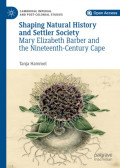
Shaping natural history and settler society :Mary Elizabeth Barber and the ni…
This book explores the life and work of Mary Elizabeth Barber, a British-born settler scientist who lived in the Cape during the nineteenth century. It provides a lens into a range of subjects with…
- Edisi
- -
- ISBN/ISSN
- 9783030226398
- Deskripsi Fisik
- xxiv, 360p. : ill.
- Judul Seri
- -
- No. Panggil
- 968.703092 HAM s
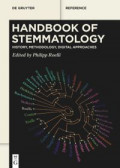
Handbook of stemmatology :history, methodology, digital approaches
Stemmatology studies aspects of textual criticism that use genealogical methods to analyse a set of copies of a text whose autograph has been lost. This handbook is the first to cover the entire fi…
- Edisi
- -
- ISBN/ISSN
- 9783110684384
- Deskripsi Fisik
- VI, 668 p.
- Judul Seri
- -
- No. Panggil
- 091 HAN h
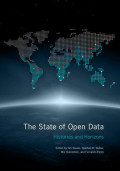
The state of open data :histories and horizons
It’s been ten years since open data first broke onto the global stage. Over the past decade, thousands of programmes and projects around the world have worked to open data and use it to address a…
- Edisi
- -
- ISBN/ISSN
- 9781928331957
- Deskripsi Fisik
- xiii, 574p. : ill.
- Judul Seri
- -
- No. Panggil
- 070.57973 STA s
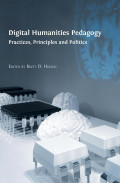
Digital humanities pedagogy :practices, principles and politics
Academic institutions are starting to recognize the growing public interest in digital humanities research, and there is an increasing demand from students for formal training in its methods. Despi…
- Edisi
- -
- ISBN/ISSN
- 9782821854031
- Deskripsi Fisik
- xix, 426p. : ill.
- Judul Seri
- -
- No. Panggil
- 001.30711 DIG d
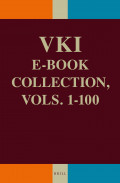
The Flamingo bay dialect of the Asmat language
Indonesia
- Edisi
- -
- ISBN/ISSN
- 9789004286108
- Deskripsi Fisik
- 380 p.; 22 cm.
- Judul Seri
- -
- No. Panggil
- 909 VOO f

Archives and human right
Why and how can records serve as evidence of human rights violations, in particular crimes against humanity, and help the fight against impunity? Archives and Human Rights shows the close relations…
- Edisi
- -
- ISBN/ISSN
- 9780429054624
- Deskripsi Fisik
- xx, 330p.:
- Judul Seri
- -
- No. Panggil
- 027 ARC a
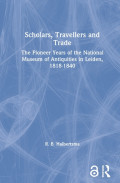
Scholars, travellers, and trade :the pioneer years of the National Museum of …
Today, the National Museum of Antiquities in Leiden is internationally known for its outstanding archaeological collections. Yet its origins lie in an insignificant assortment of artefacts used for…
- Edisi
- -
- ISBN/ISSN
- 9780203634547
- Deskripsi Fisik
- xiv, 182p. : ill.
- Judul Seri
- -
- No. Panggil
- 069.09492 HAL s
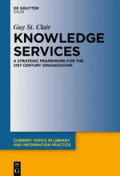
Knowledge Library:A Strategic Framework for the 21st Century Organization
Knowledge services converges information management, knowledge management (KM), and strategic learning into a single enterprise-wide discipline for the benefit of the business or organization in wh…
- Edisi
- -
- ISBN/ISSN
- 5978311046552
- Deskripsi Fisik
- 328p.: ill.
- Judul Seri
- -
- No. Panggil
- 026 ST k
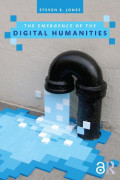
The emergence of the digital humanities
In The Emergence of the Digital Humanities, Steven E. Jones examines this shift in our relationship to digital technology and the ways that it has affected humanities scholarship and the academy mo…
- Edisi
- -
- ISBN/ISSN
- 9780415635516
- Deskripsi Fisik
- vii, 212p. : ill.
- Judul Seri
- -
- No. Panggil
- 001.30285 JON e
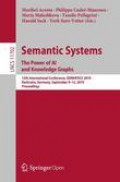
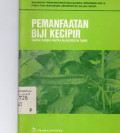
 Karya Umum
Karya Umum  Filsafat
Filsafat  Agama
Agama  Ilmu-ilmu Sosial
Ilmu-ilmu Sosial  Bahasa
Bahasa  Ilmu-ilmu Murni
Ilmu-ilmu Murni  Ilmu-ilmu Terapan
Ilmu-ilmu Terapan  Kesenian, Hiburan, dan Olahraga
Kesenian, Hiburan, dan Olahraga  Kesusastraan
Kesusastraan  Geografi dan Sejarah
Geografi dan Sejarah